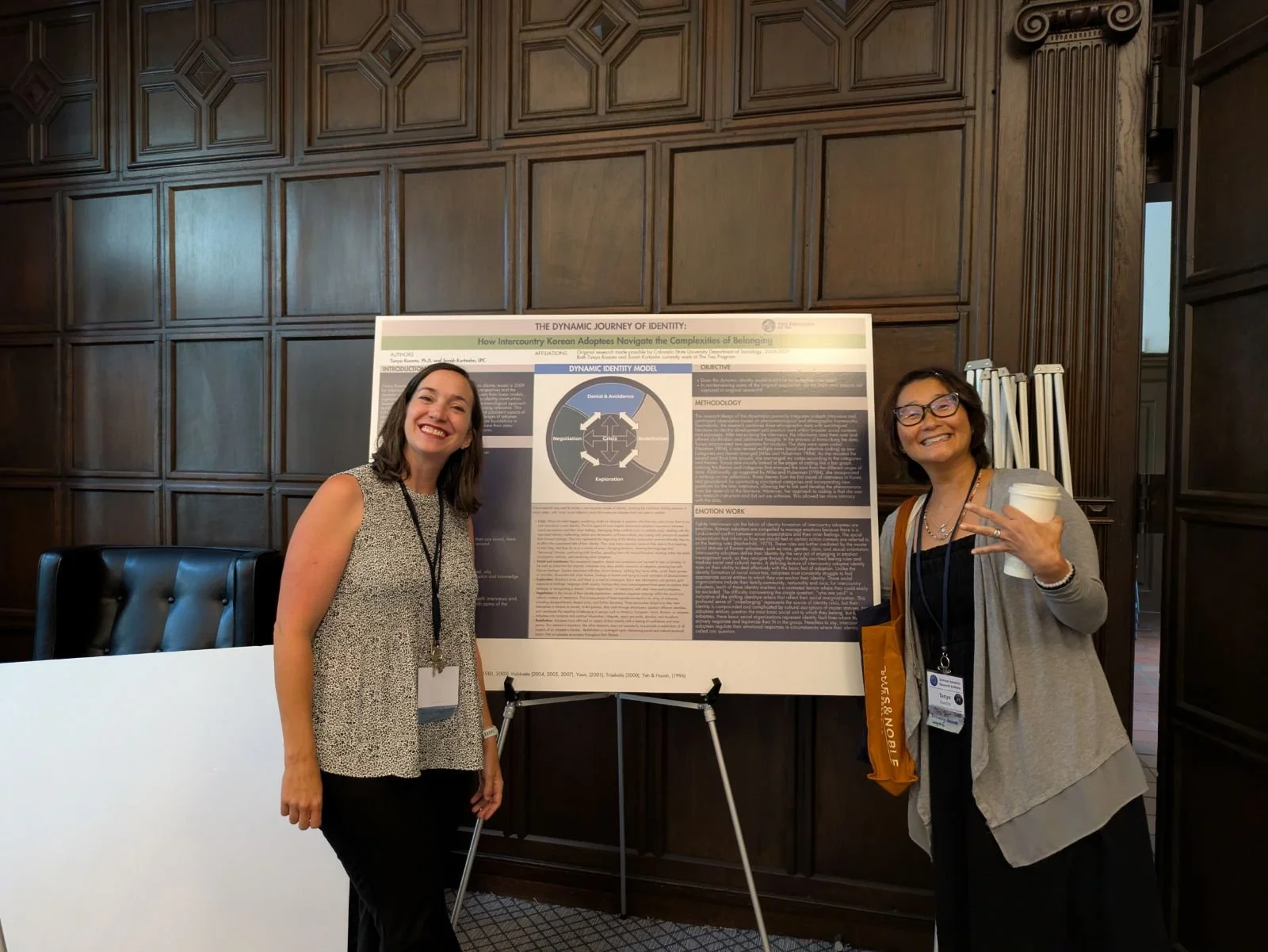Positionality, Identity, and Adoption: Lessons from the Summer Adoption Research Institute
This is part 2 of a two part series. Read part 1 here.
By Sarah Kurtzahn, Senior Ties Program Manager
(L - R) Jen Dolan, Beth Neil, Jen McDermott, and Hal Grotevant post with Sarah (center) between sessions.
In early August, I had the privilege of attending the SARI (Summer Adoption Research Institute), hosted by the Rudd Adoption Research Program at UMass Amherst. Alongside more than 20 other professionals; primarily researchers, but also counselors, therapists, and policy influencers, we explored and shared ideas, projects, and questions related to adoption research.
Adoption research spans a wide range of topics. During the week, both trainees and experts presented work through lenses including communication (how and what we talk about when it comes to adoption), psychology, sociology, and medicine. It was an enriching experience—both in learning how to design and conduct ethical research, and in understanding the current landscape of each field and the opportunities for further exploration.
Tanya (right) and Sarah at the Rudd Adoption Research Program.
One of my biggest takeaways was the importance of acknowledging one’s positionality when conducting research. Most academic papers begin with institutional affiliations, but positionality goes deeper—it includes where one stands within the adoption constellation, and the life experiences and identities that can shape the lens through which research is approached. Dr. Tanya and I are currently exploring ways to continue her dissertation research, which features a compelling model of adoptee identity. As we move forward, we’re actively considering how our own backgrounds inform the work and how to engage in meaningful, ethically sound research with positionality in mind.
As someone who is not adopted but works closely with adoptees and their loved ones, I bring a unique perspective to this space. During my time at Ties, I’ve embraced a role that’s slightly outside the the adoption triad—I’m not an adoptee, adoptive parent, or birth parent. However, as the spouse of an adoptee (you can read more about my journey with Matt here), I do see myself as part of the broader adoption constellation—sometimes referred to as the adoption mosaic—which includes those who are connected to adoption through the people they love.
There were so many other rich, thought-provoking topics explored at SARI—each approached with curiosity, care, and a commitment to deepening our collective understanding of adoption and identity. I'm grateful for the experience and energized by the work ahead.
🌿 Join Us in Community and Connection
This spring, join us on our Community & Connection Wellness Trip in Sedona, Arizona—a retreat-style experience created for international and domestic adoptees and loved ones to pause, reflect, and connect in a supportive space.
If this sounds like the space you’ve been waiting for, spots are limited—check out our trip page to learn more, request info, or register to save your place today.


